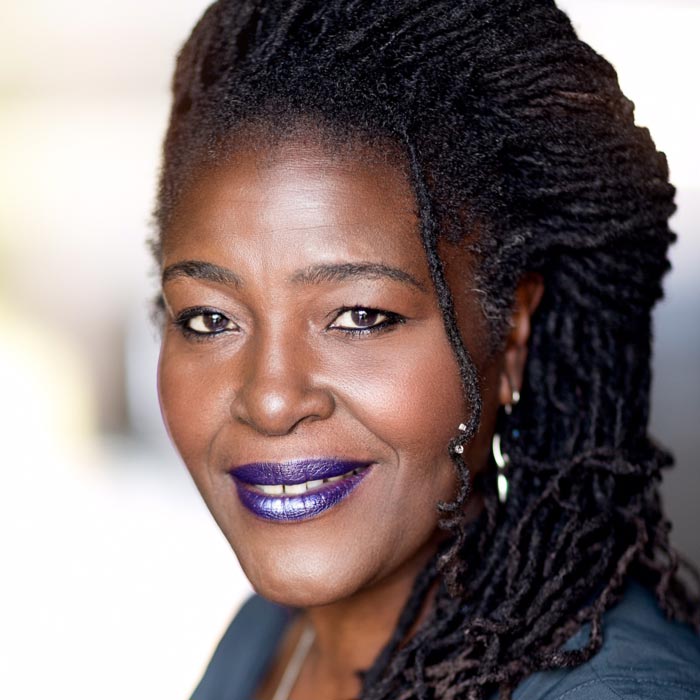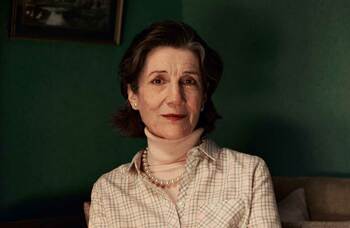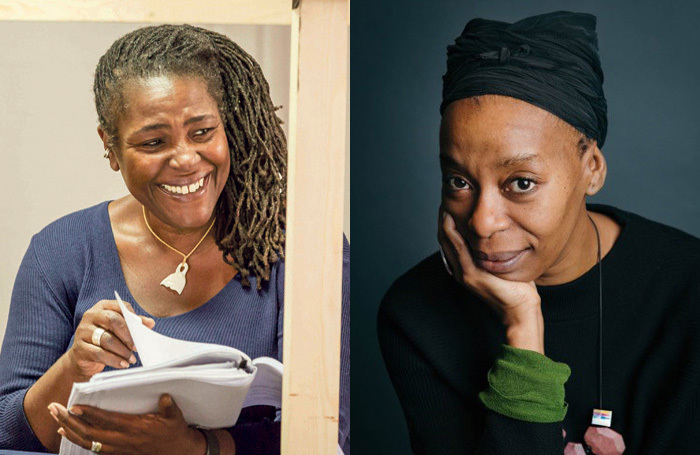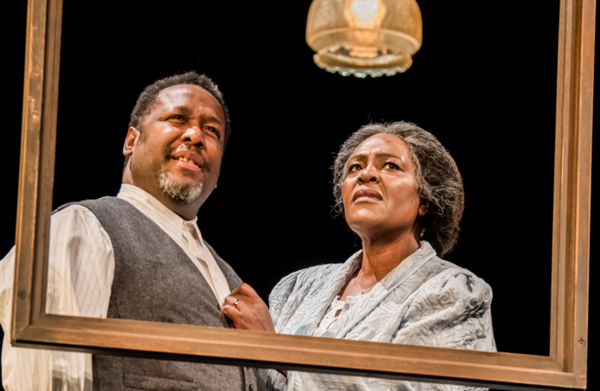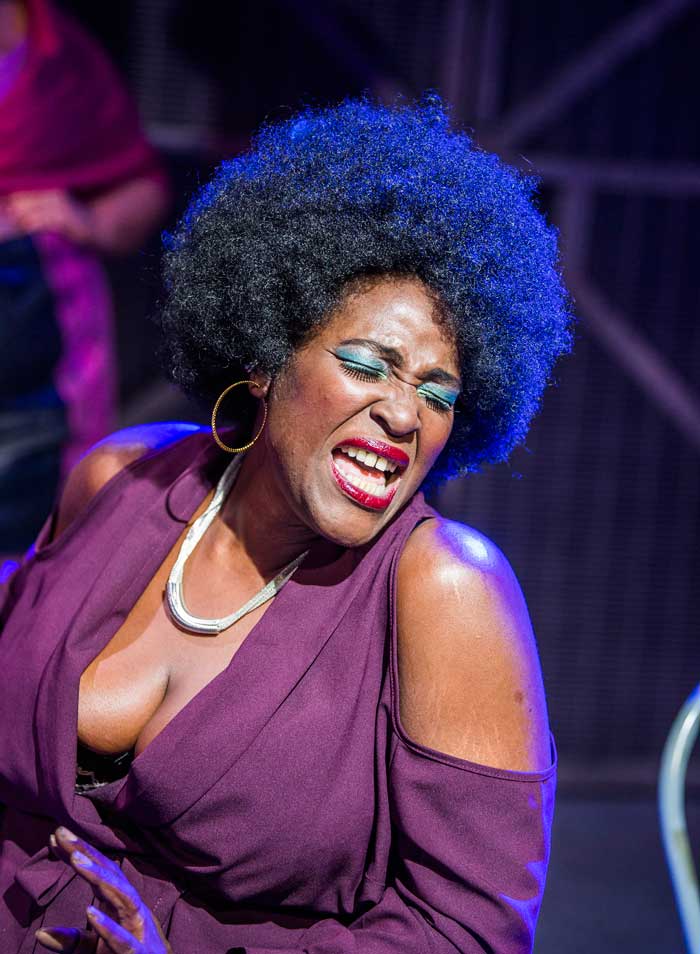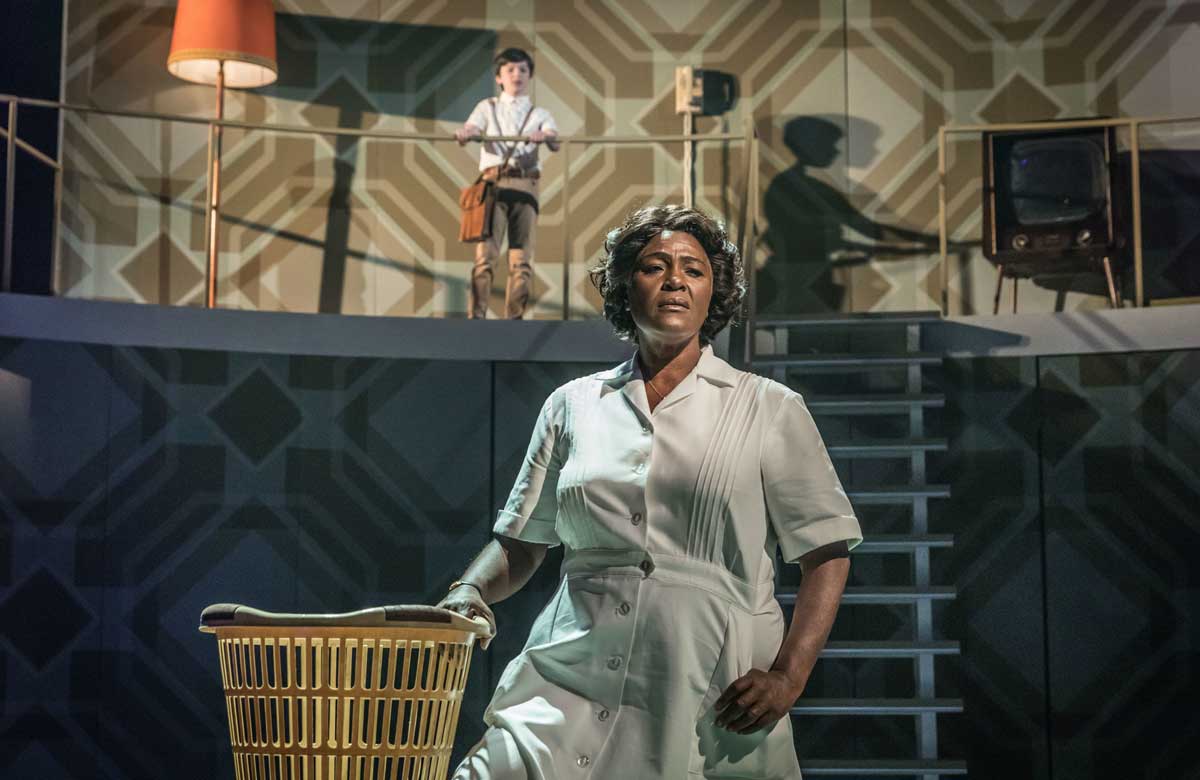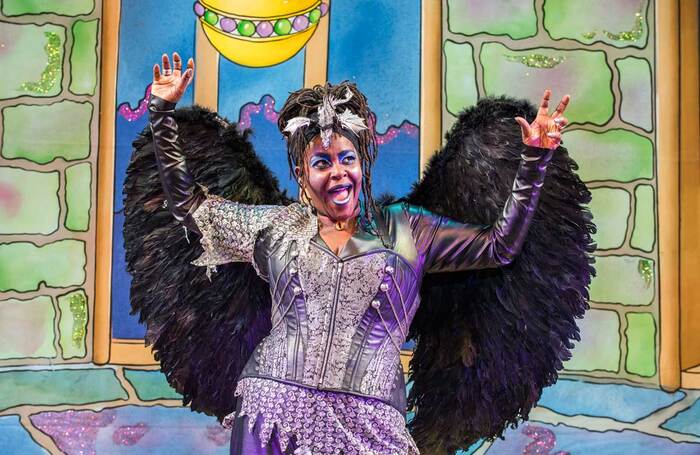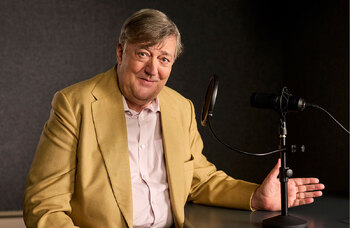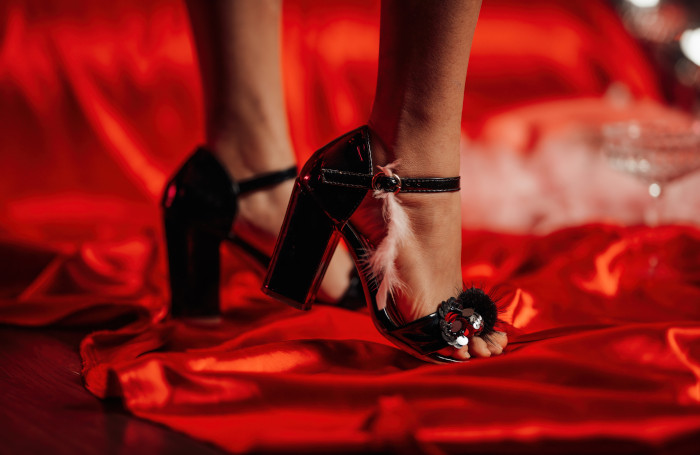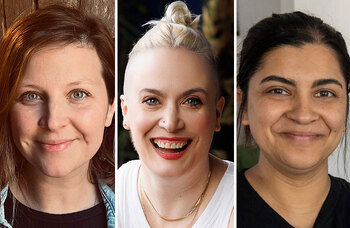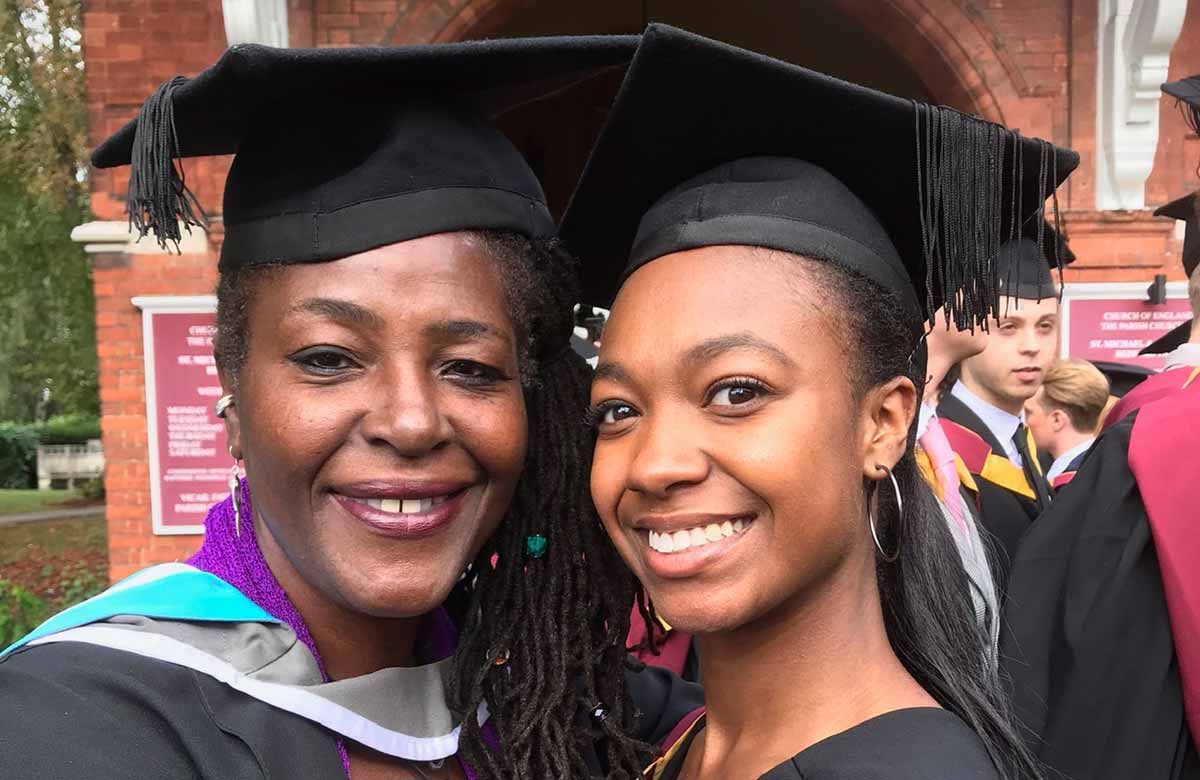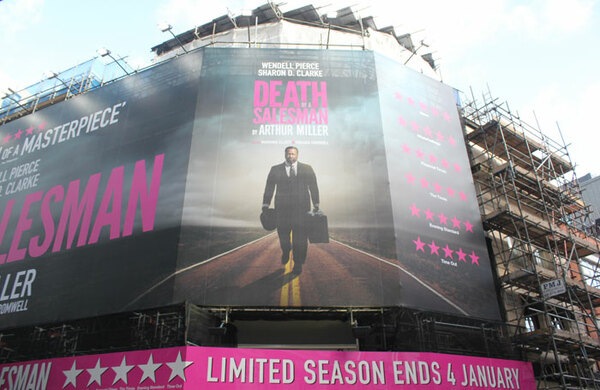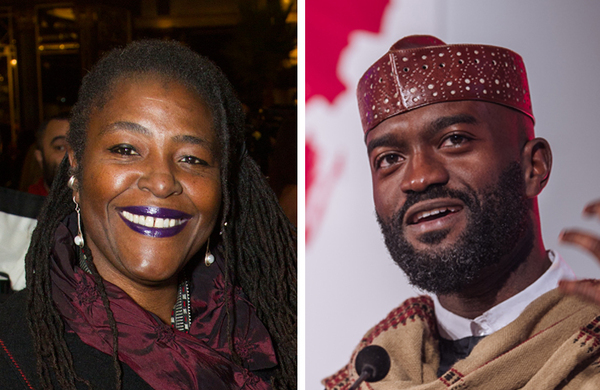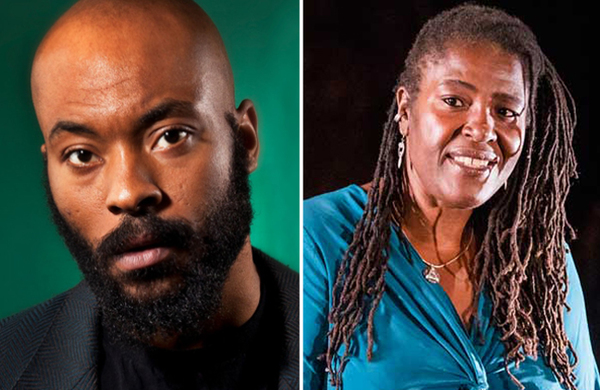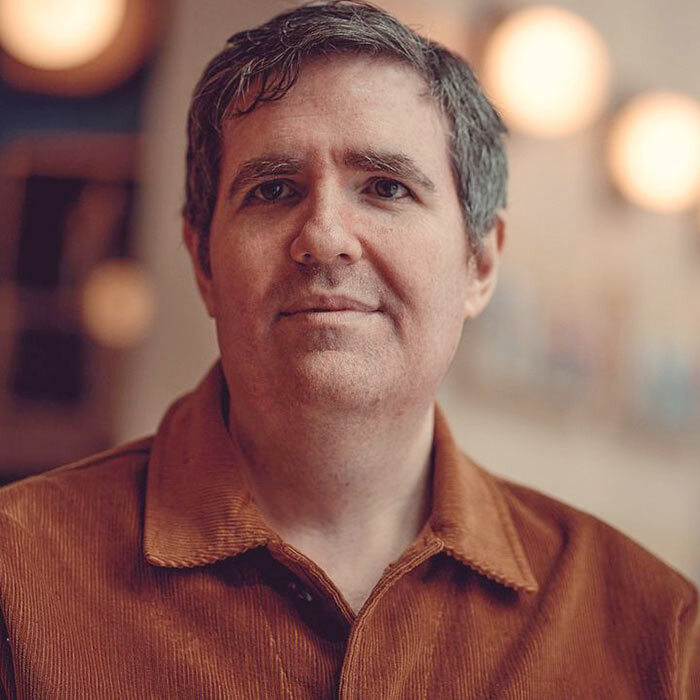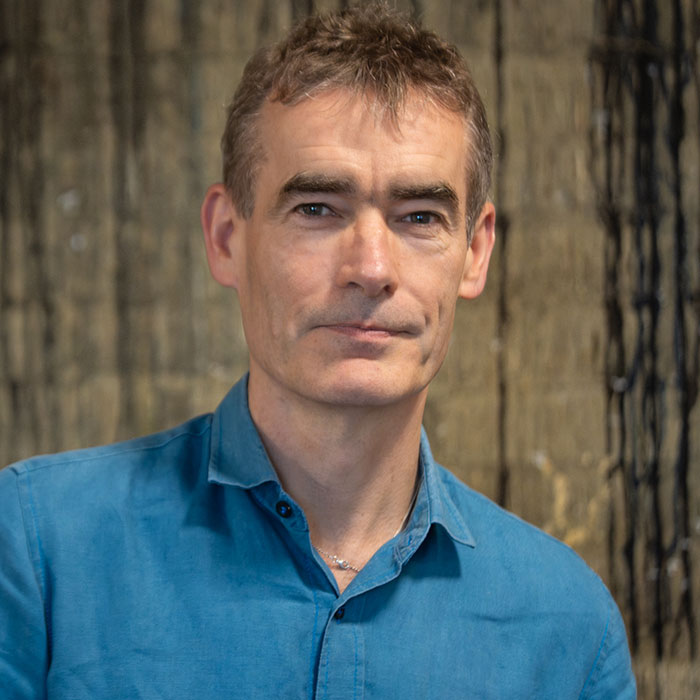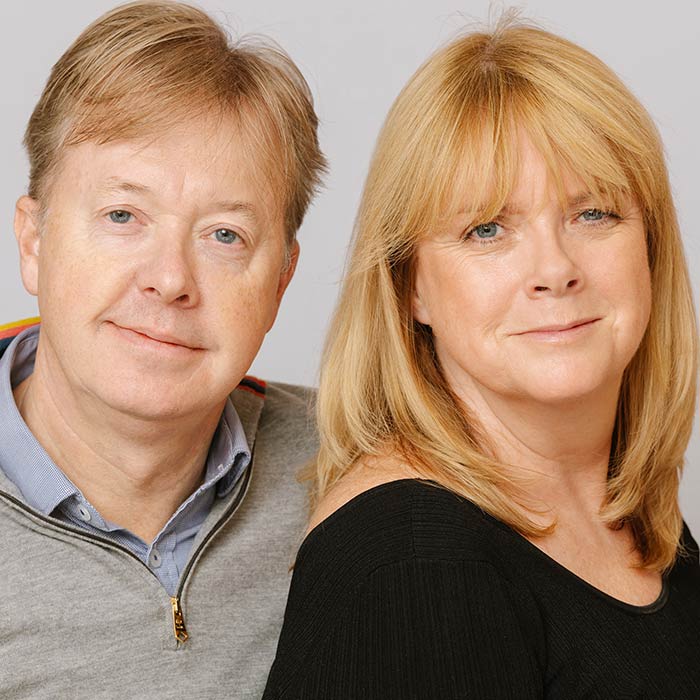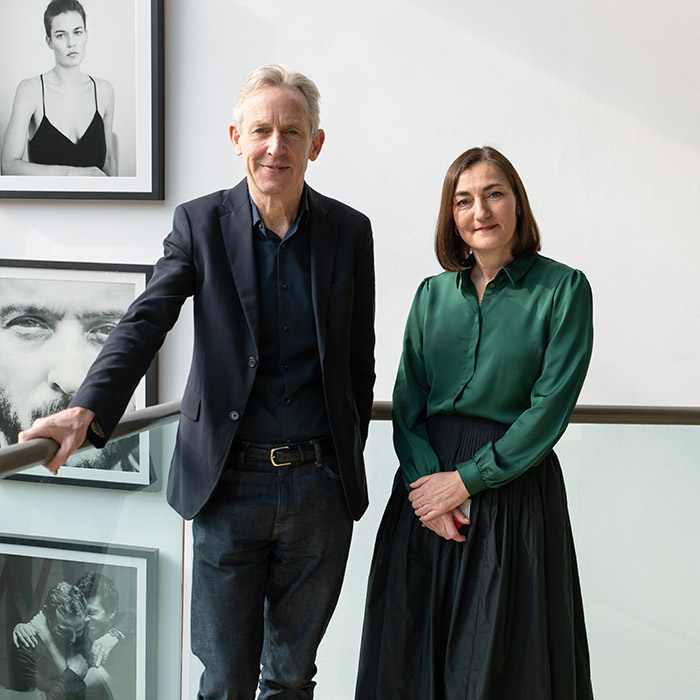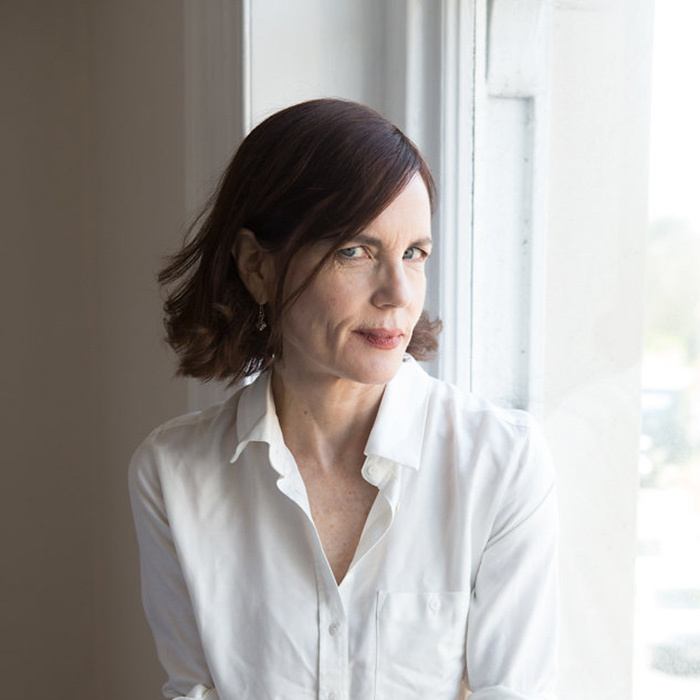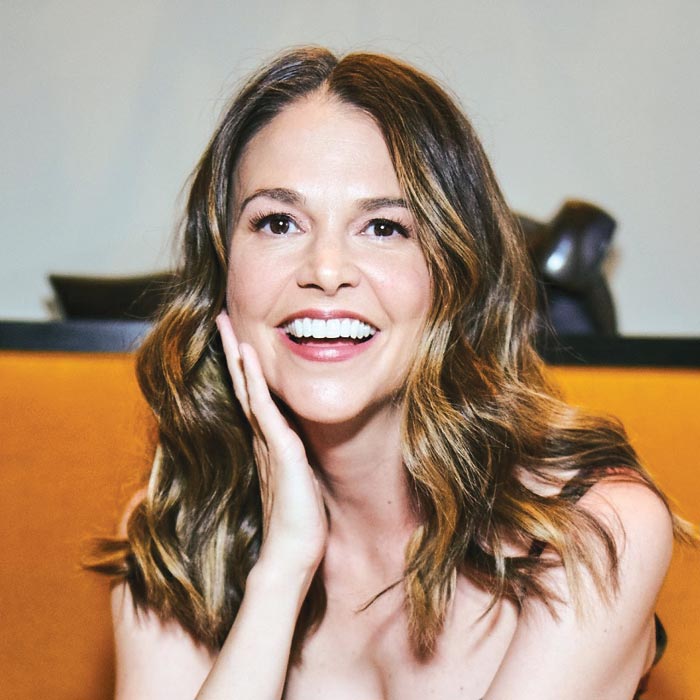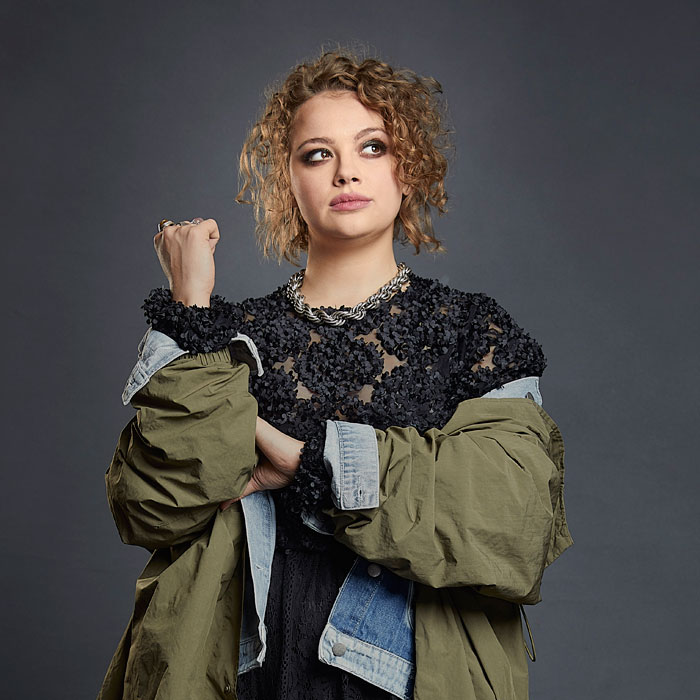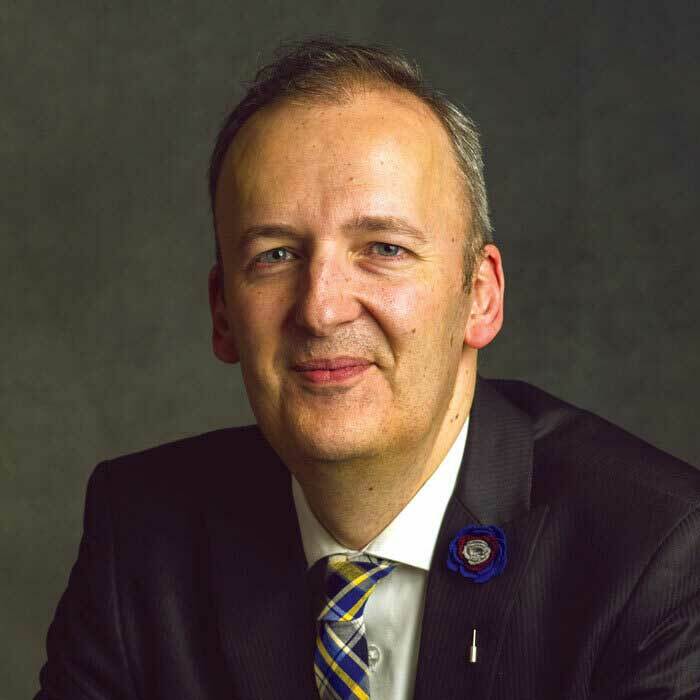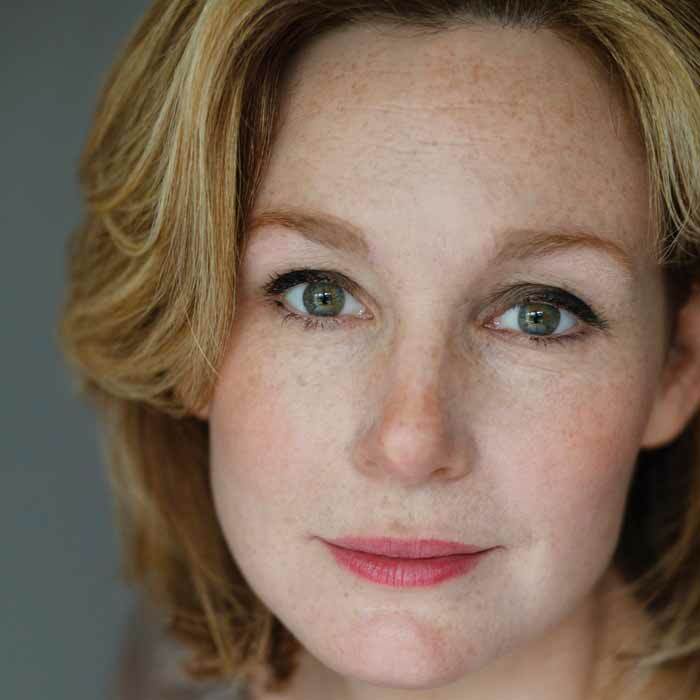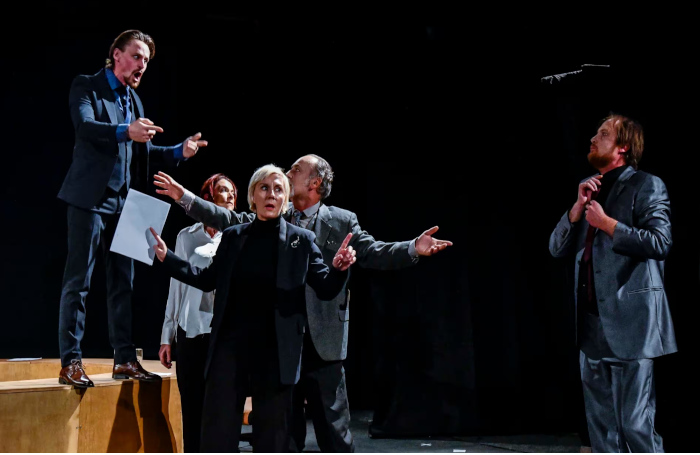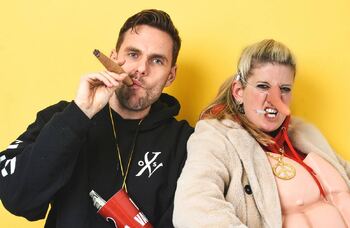Sharon D Clarke
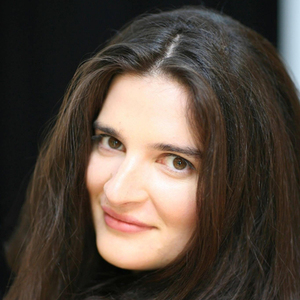 Kate Maltby
Kate MaltbyKate Maltby is a widely published writer and critic. She is chair of the Critics Circle (drama section), Prospect magazine's theatre ...full bio
For three decades, Sharon D Clarke has garnered critical acclaim for her dramatic and musical roles on stage and screen. Now working on an online project with Graeae before returning to Broadway, she tells Kate Maltby how the UK’s mishandling of the Covid-19 crisis mirrors the Windrush scandal and why she is hopeful that the sector is finally beginning to address racism
When Sharon D Clarke is present, you take notice, whether she’s standing on stage, dominating a TV screen or simply a voice on the telephone. Now a star after 30 years in showbusiness, she has no difficulty getting her voice heard, but that wasn’t always the case. And she credits Holby City, in which she played hospital consultant Lola Griffin, with teaching her to stand up for herself.
“God bless that character. She was a real turnaround for me,” she says. “A lot of my mum’s qualities were in Lola: her strength. She was loyal, fiercely loving, just joyous, but she didn’t mind confrontation. I was more my dad’s kind of child and didn’t like confrontation at all. I grew up wanting to please. So playing Lola, who was quite confrontational, and seeing how people loved her strength, and loved the fact that she didn’t give a damn, actually released that side of me much more.”
At home Clarke’s wife, the theatre director Susie McKenna, had to warn her that “Lola’s taking over a bit in life”, even if that wasn’t entirely a bad thing.
‘Playing Lola Griffin on Holby City was a real turnaround for me’
Clarke knows all about the importance of having a voice and making people take notice. When we speak on the telephone in December, it’s to promote her work with Graeae, which has produced five new short plays by Deaf and disabled artists in its Crips Without Constraints series.
Each new piece pairs one disabled actor with one non-disabled celebrity actor: “We’re lending our names to their voices”, Clarke says. Harriet Walter and playwright Jack Thorne are also involved in the project. Clarke had wanted to work with Graeae for years: “It’s a wonderful company. The work that they do for inclusivity, the fact that they’re giving the disabled community a platform.”
Q&A Sharon D Clarke
What was your first professional theatre job?
Southside at Battersea Arts Centre in 1984. Jude Kelly directed and issued my Equity Card. Ever grateful, Jude.
What do you wish someone had told you when you were starting out?
I was very lucky, I had great mentors who guided me and showed me the way through their behaviour and professionalism on and off stage. They taught me to be true to and believe in myself. I would tell myself to usher. It’s a wonderful way to learn your craft and have masterclasses on how to and how not to, and earn a bit of money.
Who or what was your biggest influence?
My parents – and my peers for the sharing of their talent, friendship and wisdom.
What’s your best advice for auditions?
Know your pieces inside out, back to front. Sell It. Don’t look at the floor. No hands in pockets. Be yourself.
Do you have any theatrical superstitions or rituals?
I go on stage and thank the building for having me and being my home on first arrival and last departure.
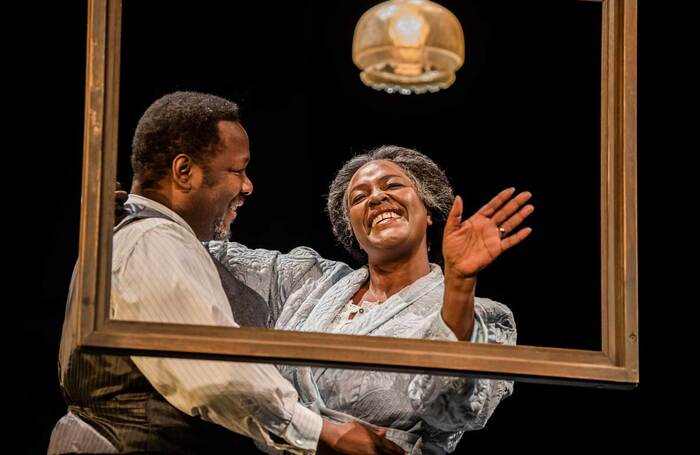
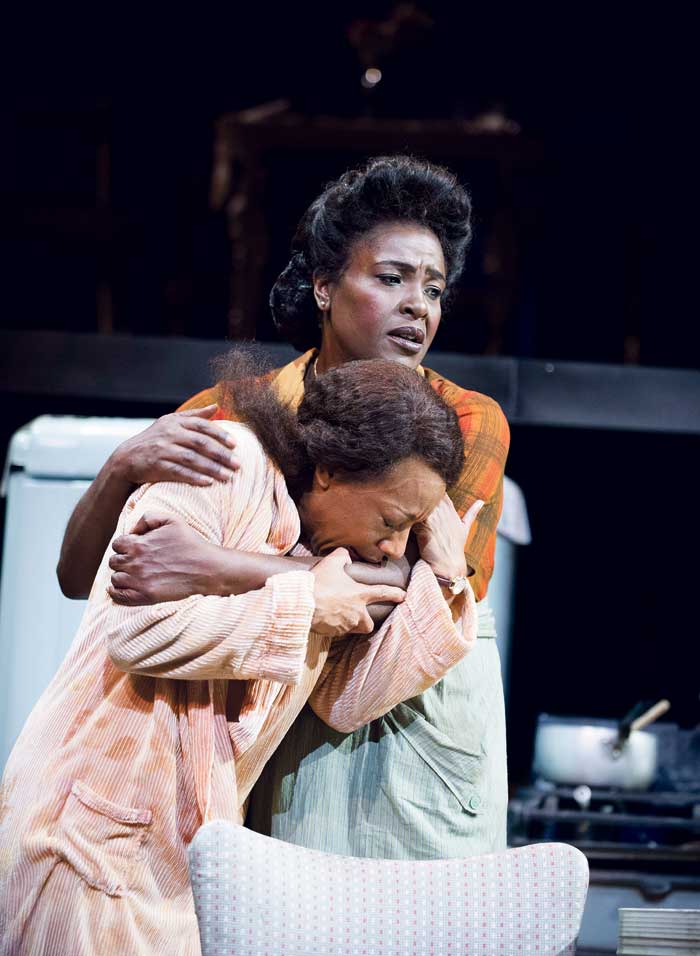
Winning plaudits
In the years preceding the Covid-19 pandemic, Clarke’s star had risen and risen. In 2017, she had been the irresistible force driving Chichester Festival Theatre’s revival of Tony Kushner’s musical Caroline, Or Change. In Michael Longhurst’s long-running production, Clarke played the titular African-American maid whose relationship with her wealthy Jewish employers breaks down against the backdrop of the Civil Rights movement.
Then, in one of her last roles before lockdown, she rewrote the rules of Death of a Salesman, at London’s Young Vic in 2019. Clarke elevated the supporting role of Linda Loman and turned in a performance luminous enough to match the star wattage of Wendell Pierce’s Willy Loman.
With this production, the Lomans shifted from a Jewish-American family to an African-American family, so like Caroline, Or Change, it enriched Clarke’s perspective on the need for black and Jewish solidarity. “Our stories, the experiences are the same. The whole existence of Holocaust denial just freaks with my head. The two can draw solidarity from their experiences, and what they have endured and suffered and come through, and that should bring people together.”
The roles of Linda Loman and Caroline won Clarke successive Olivier awards for best actress. (She already had a best supporting actress Olivier for her 2013 performance in James Baldwin’s The Amen Corner at the National.) Accepting her most recent Olivier, last October, Clarke told the theatre industry: “We must know our worth in this industry, and what our incredible industry brings not only to the coffers but to the soul of our nation.”
To make her presence felt, Clarke doesn’t even have to be in the room, as she proved with her acceptance speech at the Critics’ Circle Theatre Awards in February 2020. Having won for her role as Linda Loman, Clarke couldn’t attend as she was in New York for the Broadway transfer of Caroline, Or Change.
‘Treatment of the Windrush Generation is an absolute betrayal – and there seems to be betrayal on so many levels at the moment’
McKenna read out her acceptance speech. But there, loud and clear, was Clarke’s inimitable voice. She dedicated the win to her parents Viola and Vincent: “Part of the Windrush Generation. British citizens. Who answered the call to come and rebuild the mother country.” There was a part of her, she added, “who is glad you’re not alive to witness the terrible betrayal and injustice inflicted on the Windrush Generation and their families at this very moment”. All of us present, she said, “have a duty to raise our voices in anger.” No one who was in the room will forget it.
“When I said in the speech that I was actually quite glad that my parents weren’t around, I really meant that,” she tells me almost a year on. “Because it was their home. People who were invited here, and worked hard, went through all kinds of madness to form a community, to be part of society, to be worthwhile and giving, to a country that they looked up to. And to be treated in that way – I’m glad they weren’t around to see that betrayal. It is an absolute betrayal. And it just seems to me that there is betrayal on so many levels for all kinds of things at the moment.”
When we speak in December, she’s patient, gentle and warm. But we still start by talking about anger: not Clarke’s, but the nation’s. Two days earlier, Boris Johnson had U-turned on England’s plans for Christmas, nine months into a catastrophically mismanaged pandemic that has disproportionally affected ethnic-minority communities.
Clarke is appalled: “The choices and decisions have just been horrendous, they’ve not been compassionate. I don’t feel they’ve been thought through. I don’t feel that they’re anything to do with people, or community or society.” But the combination of incompetence and cruelty is all too reminiscent of the treatment of the Windrush generation. “I don’t know what it’s driven by, to be honest, but it’s not about us, it’s not about the people.”
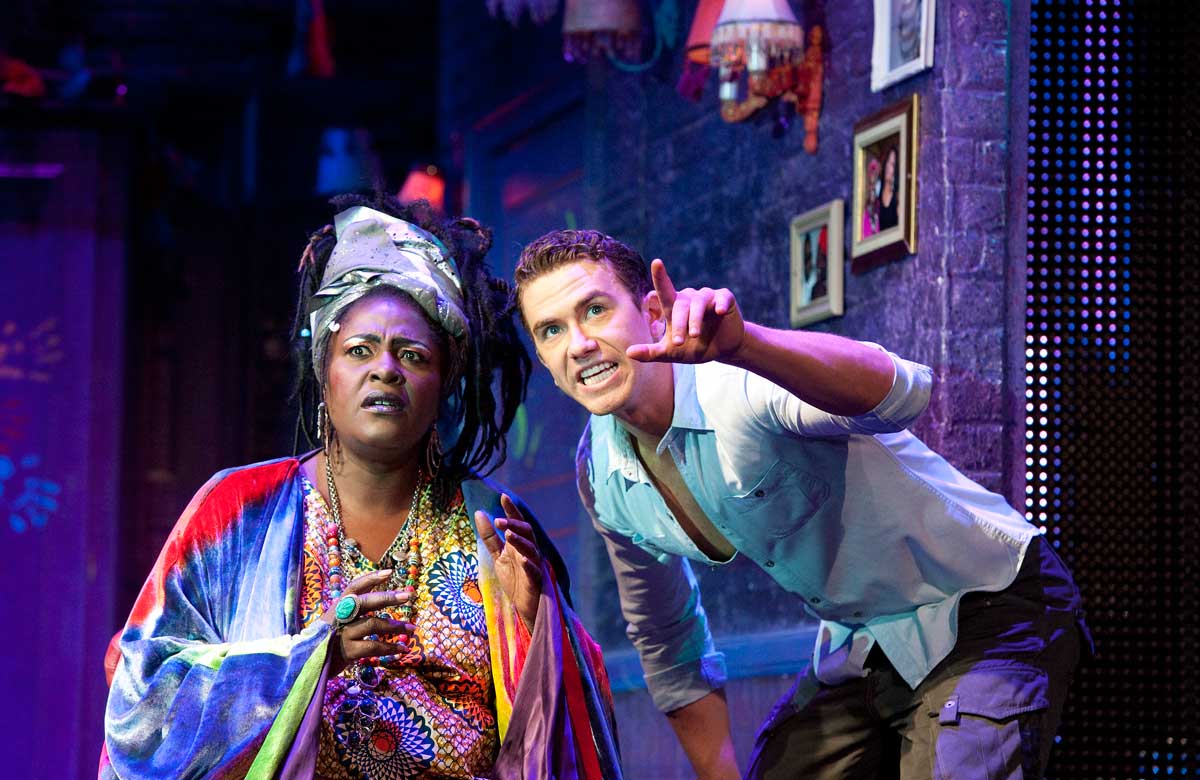
Coping with lockdown
When Covid hit, Clarke was on Broadway, just on the point of opening Caroline, Or Change. The first preview was due to open on Friday, March 13. McKenna had arrived in New York on the Wednesday in support, a day before the dress rehearsal. But that Thursday afternoon, Broadway cancelled all performances. “It was really hard,” Clarke says. “It was just so disheartening.”
Not realising the full epidemiological implications, when the company got the news, “we’d all gone to a tiny little bar in Midtown – one of those long cellar bars – and drowned our sorrows”, leading to some panicked self-isolation immediately afterwards. The Caroline, Or Change team had originally hoped for a delay of only three weeks to a month – Clarke laughs – and she’d hoped to wait out the delay in New York. But once a travel ban was announced on US visitors to the UK, it became clear that McKenna and Clarke needed to get back home as soon as possible. They ended up, Clarke believes, on the last American Airlines flight to London.
What helped, she says, was Broadway’s community decision-making. Broadway’s theatres decided to close collectively; the West End did not. “What Broadway did by closing down as a unit and doing that as a community put everybody on the same page immediately, and so no one could take it personally, but you could handle it as a community. Whereas here we didn’t have that. You had some people closing immediately, never to reopen, and people floundering and trying all kinds of things.”
So far, the reopening of Caroline, Or Change has been pushed back “to September, to January, to April, to July and finally to September 2021”. Clarke is relieved to know she has a job to go back to, but her biggest concern is for the six small stage-struck boys who had been originally lined up to play her character’s sons.
“They were just distraught at the news, absolutely distraught. Too many growth spurts and they won’t be able to play eight-year olds when the show finally reopens. So I am looking at these boys and going: ‘Please don’t grow too much, my darlings, because I want you in the show.’ ”
‘My job as a social worker was all about working inclusively, so any chance I have to do anything like that in my acting career, I will’
This is typical of Clarke, whose concerns throughout our conversation are for the impact of the pandemic on other people. “We’ve known people who’ve lost their homes”, she says, while stressing that she and McKenna are “among the blessed”.
The one “joy” of lockdown has been the chance to spend time together – this is the first Christmas they’ll have the full festive season together, given their mutually challenging work schedules. The price has been seeing no one but each other, their cat Sweetie, and McKenna’s octogenarian mother. Clarke hasn’t been to a supermarket for nine months, depending on the local corner shop, and hasn’t tried out any of the live experiments with socially distanced theatre. “It’s all about keeping my mother-in-law-safe.”
Clarke has spent recent weeks working online with Graeae, on a duologue rehearsed and performed over Zoom. “As soon as I heard it was Graeae, I was like: ‘Okay, it’s Graeae.’ The fact that they’re giving the Deaf and disabled community a platform – of course it was a company that I’ve always wanted to work with.”
She is working opposite Saida Ahmed on The Gift by Leanna Benjamin, a script about a non-disabled mother struggling to respond to her disabled daughter’s pregnancy. Before she was an actor, Clarke was a highly trained social worker: “My job was all about working inclusively, so any chance I have to do anything like that in my acting career, I will.” With director Cheryl Martin, it’s a creative team of all black women, “so it was really lovely to see that as well”.
Long rise to stardom
In the past, Clarke has described herself as a “30-year overnight sensation”. It’s certainly been a long haul, but she’s been playing the big leagues for a while now. The National Theatre has been central to her career and so too has her ability to interweave dramatic and musical crafts seamlessly. For that first Olivier win for The Amen Corner directed by Rufus Norris, Clarke played the sister of a troubled church pastor. The show’s soundscape of gospel music and jazz became a character in itself.
In 2016, Clarke returned to the National to play the historical jazz star who gives her name to August Wilson’s play Ma Rainey’s Black Bottom. “At that point in her life, she was Beyoncé. She was an absolute trailblazer for every black female performer walking down the line. And she was in control of what she did.”
Clarke was invited to a special screening of the recent Netflix film of the same play, starring Viola Davis as Ma Rainey, and the late Chadwick Boseman. “It just reminded me of the poetic nature of August Wilson’s writing. It’s heartbreaking, but it’s beautiful and poetic.” Clarke sees the historic Ma Rainey as a role model: “It was so close to the abolition of slavery, and it’s this woman saying: ‘I know my worth.’ ”
Clarke is now looking forward to returning to Broadway with Caroline, Or Change. When – she clearly won’t countenance ‘if’ – it reopens, it will do so in a world changed by the killing of George Floyd and the emergence of the Black Lives Matter movement. Yes, the show is “even more relevant than ever”, she says, but for as long as Clarke has been telling it, this tale of a town dominated by a Confederate statue has always been relevant.
Halfway through the show, the statue is pulled down – “and in the 1960s, it’s not going to be the white people that tear it down”. The original production opened at Chichester in 2017 in the same week as the Charlottesville riots. “And in the story, it happens after JFK is shot, and it’s about the way hope is followed by despair. And I’ve been thinking a lot about that as we’ve seen the first black president, and now we have the orange President, and everything has turned on its head.”
Confronting racism
When news of Floyd’s death emerged, Clarke reaction was first “one of utter and total despair, one of immense anger – and then seeing the world marching, and coming out and standing by and standing with, really hopeful”.
She is hopeful for a positive impact on UK culture. “In the arts here, it has opened up conversations about diversity and change, which we’ve been having for a long time without feeling that anyone was really listening.”
To draw on specific examples, Clarke points out that the BBC is finally organising research into black talents’ experience with hair and make-up. These are important conversations, “because make-up and hair as black people in television can just be an absolute nightmare”.
But it’s come after too long, and at too much cost. “For things that we’ve been talking about for years, to feel like they’re finally on the table, is a good thing, but it makes me angry that it has taken the death of yet another black man for that to happen,” Clarke says.
Nor, as a child of the Windrush Generation, is Clarke comfortable with the focus primarily on racism in America. “For me there’s absolutely no difference. As a black person growing up in this country, my parents had to have ‘the talk’ with me about what it would be like in society and how I would be treated, to prepare me. And I think that for practically every black person of my generation, their parents would have had to have that talk with them.”
‘Things we’ve been talking about for years are finally on the table, but it makes me angry that it has taken the death of another black man for that to happen’
When we talk about the culture Clarke has consumed in lockdown, she talks about watching the “fab” National Theatre screening of Small Island. The show tells the story of Gilbert, a Jamaican man who arrives in Britain on the SS Windrush, and of his wife Hortense, who experiences acute racism but is befriended by Queenie, her awkward white landlady.
“Queenie’s always trying. And that’s all you can ever ask of people. To try to have some kind of acceptance – to try to build some level of friendship.” But it also reminds Clarke of a story she’s told before, of the white woman who asked Clarke’s parents about the difference between their houses in Britain and the ‘caves’ they had presumably lived in previously.
Fundamentally, however, she shares the optimism of Small Island. She’s optimistic about Britain and, for all her horror at colonialism, accepted an MBE three years ago. “I could hear my mum, who had passed earlier that year, telling me with a firm voice, to accept. They would have been so proud to accompany me to the palace.”
Clarke’s love for her parents, which burned like a lamp throughout our conversation, comes through again when she emails me afterwards, about their influence on her life in the arts. How they were “staunch supporters, who never told me to get a proper job”. For that we should all be thanking them.
CV Sharon D Clarke
Born: 1966, London
Training: Ivy Travers Dance School; Anna Scher Theatre
Landmark productions:
Theatre:
• Once on This Island, Peacock Theatre, London (1994)
• The Lion King, Lyceum Theatre, London (2000-02)
• We Will Rock You, Dominion Theatre, London (2002-04)
• The Amen Corner, National Theatre (2013)
• Ma Rainey’s Black Bottom, National Theatre (2016)
• Caroline, Or Change, Chichester Festival Theatre (2017); Hampstead Theatre (2018); Playhouse Theatre (2019)
• Death of a Salesman, Young Vic (2019); Piccadilly Theatre (2019)
TV:
• Holby City, BBC (2005-08; 2019)
• Informer, BBC (2018)
• Doctor Who, BBC (2018-21)
Awards:
• Olivier awards for Death of a Salesman (2020), Caroline, Or Change (2019) and The Amen Corner (2014)
• Critics’ Circle Award for Death of a Salesman (2019)
• Black British Theatre awards for Caroline, Or Change; Lifetime Recognition (2019)
• Off-West End Theatre Award for The Life (2018)
• Manchester Theatre Award for Ghost (2011)
• WhatsOnStage Award for We Will Rock You (2003)
Agent: Scott Marshall Partners
Crips Without Constraints is a series of five plays, released every Tuesday from January 19 to February 16 on Graeae’s website and YouTube channel.
More about this person
Big Interviews
Recommended for you
Opinion
Most Read
Across The Stage this weekYour subscription helps ensure our journalism can continue
Invest in The Stage today with a subscription starting at just £7.99
